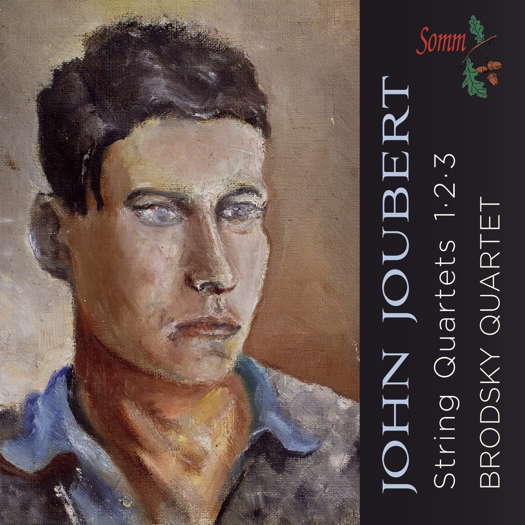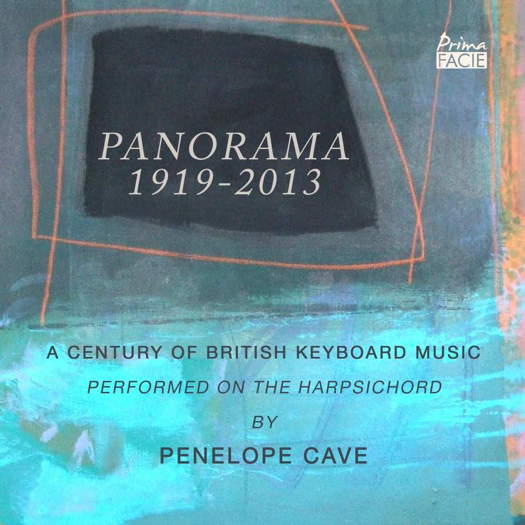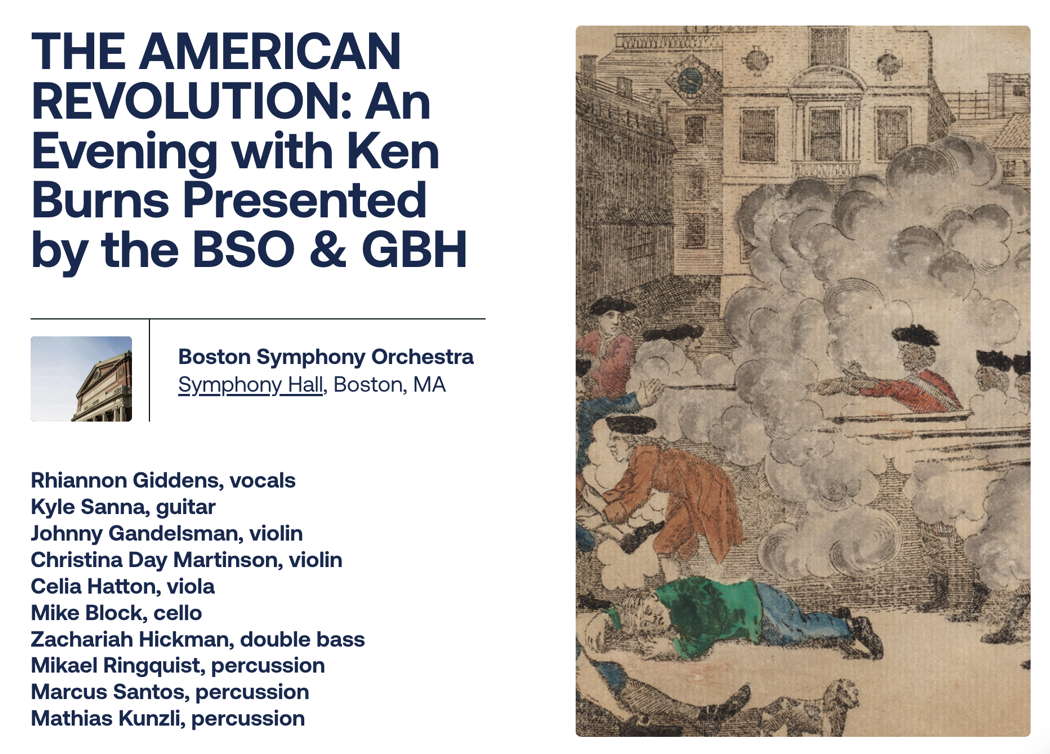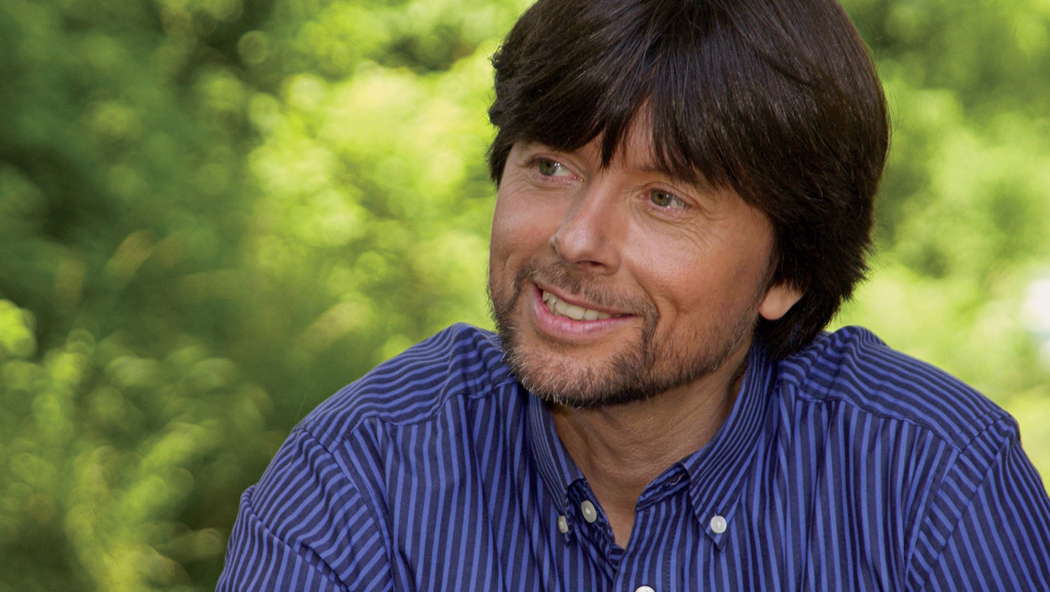- Leporello
- Evgeniy Shiryaev
- Cecilia of Rome
- Hendrik Andriessen
- WWII
- Beyonce
- Tokyo New Philharmonia
- Nash Ensemble
 SPONSORED: CD Spotlight. A Fascinating Recording - John Joubert's string quartets, heard by Alice McVeigh.
SPONSORED: CD Spotlight. A Fascinating Recording - John Joubert's string quartets, heard by Alice McVeigh.
All sponsored features >>
 SPONSORED: CD Spotlight. A Fantastic Collection. Penelope Cave Panorama CD. Little-known harpsichord gems, strongly recommended by Alice McVeigh.
SPONSORED: CD Spotlight. A Fantastic Collection. Penelope Cave Panorama CD. Little-known harpsichord gems, strongly recommended by Alice McVeigh.
All sponsored features >>
An Integral Voice Among Many
JOHN DANTE PREVEDINI attends an evening with American film director Ken Burns
On the evening of 16 April 2025 at Boston's Symphony Hall, a highly unique event took place which was part concert, part panel discussion and part film screening in commemoration of the 250th anniversary - the semi-quincentennial - of the outbreak of the war which would give birth to the United States of America as a nation. Film director Ken Burns led the event before a full house, showing segments of his upcoming film The American Revolution, joining a panel discussion on the film's subject matter and introducing a performance of the music featured in the film. The film itself is scheduled to premiere in the USA on 16 November via GBH and PBS.

Publicity from the Boston Symphony Orchestra website
for the 'Evening with Ken Burns' event
The two-hour event opened with introductions by presidents Chad Smith of the BSO and Susan Goldberg of GBH, two of the partnering organizations for the occasion. The remainder of the evening featured clips of the nearly-finished film interspersed with live performances of the film's music by a chamber ensemble. The featured musicians were Rhiannon Giddens (banjo and voice), Kyle Sanna (guitar), Johnny Gandelsman (violin), Megumi Stohs Lewis (violin), Celia Hatton (viola), Mike Block (cello), Zachariah Hickman (double bass), Mikael Ringquist (percussion), Marcus Santos (percussion) and Mathias Kunzli (percussion). The panel discussion took place halfway through the evening and featured Ken Burns alongside co-director and co-producer Sarah Botstein, Harvard history professor Vincent Brown, Harvard history professor Philip J Deloria, Harvard history professor Maya Jasanoff and Susan Goldberg.
Over the course of the evening, every one of the speakers drew connections between the symbolism of the historic events being commemorated and their meaning in the present moment, to which the audience responded by breaking out in repeated enthusiastic applause. The point was echoed numerous times, and in numerous ways, that the theme of national identity had come into focus. The film, and the music in it, were an invitation for everyone in the hall to reflect on the nature of that identity, how it was symbolically articulated a quarter of a millennium ago and how it is symbolically articulated today.
It is perhaps safe to surmise that, were one to imagine an upcoming event commemorating the 250th anniversary of the start of the American Revolutionary War through a lens of Western classical music, it would not be amiss for most of us to picture a program of standard United States orchestral repertoire along the lines of Copland, Bernstein and John Williams. While that exact program may indeed be planned for various US concert halls over the next few years, 16 April at Boston's Symphony Hall was not that event. On the contrary, it was arguably something far more compelling and transformative.
In the concert portion of the program were examples of music representing various traditions and cultures; indeed, the composer credit for most of the pieces was 'Traditional'. The music included tunes from around the British Isles, various traditional Afro-Cuban rhythms and an excerpt from Rameau. Aside from the latter, the Western classical idiom was present in the harmonic and textural idioms of the string arrangements. Historically informed elements were audible throughout many aspects of the musical selection, curation and performance. The music, nonetheless, retained an immediacy - a tangible connection to many threads of multiculturalism which are still present in the United States today. The Western classical element was there alongside many others, appearing in that moment to be simultaneously a quarter-millennium old and fully contemporary.
Burns was consistently forthcoming throughout the evening in his emphasis that music was a primary consideration in telling the story conveyed in his film. He also stated multiple times that the story of the United States' founding is one of an emergent society whose multiculturalism was, as it still is, unlikely in the world's history. This event was probably not literally envisioned as a 'classical music' event - at least not exclusively. Nonetheless, those musical traditions inherited from the legacy of the European aristocracy were there, playing an integral part alongside those inherited from elsewhere which were doing the same.

Ken Burns (born 1953, Brooklyn, New York). Photo © 2006 Cable Risdon
Many people in the United States and abroad are clearly and understandably wondering what it means to be 'American' in 2025. What have the people of this country come to involuntarily represent? What powers and responsibilities do these identities come with? What are the consequences of these powers and responsibilities to oneself and to others? Many of us have likewise been asking similar questions for years about what it means to be a Western classical musician in a world of dwindling budgets, shuttered venues and the struggle for perceived sociocultural relevance. While all of these questions will likely remain somewhat unsettled for some time, I came away from the event of 16 April reassured that there is, at the very least, wisdom in humble confidence. Whether we are grappling with the place of Western classical music on the world's musical stage or of 'American'-ness on a political stage of any size, there is a dignified power in practicing the role of an integral voice among many. This means being able to coexist (better yet, co-prosper) with those who are different from us, whether those differences are for reasons of musical identity, of nationality or of various natural human characteristics currently known or yet to be understood. It means setting a tone of trust that the inclusion of others does not automatically threaten the exclusion of oneself. It means working toward a world where our different identities honor the collaborative ecosystem we were all meant to compose - not the ultimately futile competitive struggle for fleeting and illusory dominance.
Copyright © 19 April 2025
John Dante Prevedini,
Connecticut, USA



